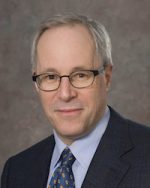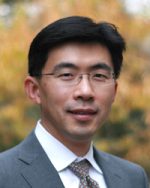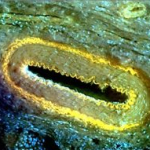TechAccel Makes Further Pledge to the UC Davis Venture Catalyst STAIR Grant Program to Promote Agriculture
/in News /by Aj ChelineTechAccel will commit $50,000 in grant funding to an expansion of the Venture Catalyst STAIR grants, which are in their fifth year of enabling the commercial translation of UC Davis research and technologies through proof-of-concept funding.
This promise of additional funding is intended to elicit more agricultural-focused technologies. TechAccel’s additional funding will support a sixth STAIR grant this year to focus exclusively on a technology in plant or animal agriculture, animal health, animal nutrition, or technologies to reduce post-harvest food waste and increase food safety. If successful, this expanded program may be repeated.
Applications for program funding are now available to UC Davis researchers. The deadline is March 12, 2018.
“We are proud to collaborate with the world-class talent at UC Davis,” said Michael Helmstetter, Ph.D., President and CEO of TechAccel. “Together, we see opportunities to make a greener, healthier future by helping advance agriculture, animal health, and food safety technologies to market.”
Dushyant Pathak, associate vice chancellor for Research and executive director of Venture Catalyst at UC Davis, agreed.
“We’re thrilled with this generous enhancement to our existing collaboration with TechAccel which has already provided support for novel translational research at the university,” he said. “TechAccel’s unique focus and its combination of business and technical expertise provide the perfect complement to our strengths at UC Davis in technology development and product innovation for societal impact.”
TechAccel is a technology and venture development organization focused in agriculture, animal health and food technology. The company invests in innovative technology and funds science advancement programs to accelerate readiness for commercialization.
TechAccel began its collaboration with UC-Davis in 2016 with participation in the UC-Davis Venture Catalyst STAIR-PlusTM program, which supports STAIRTM grant recipients who successfully achieve their commercialization milestones.
As part of the program, TechAccel executives participate in the review and assessment of grant applications in agriculture, animal health, food and nutrition. TechAccel executives provide mentorship to grant-winning researchers, who may also be considered for future TechAccel emerging company investments.
TechAccel also recently announced an investment in a science advancement project underway at The Siegel Lab in the Genome Center at UC Davis. This project, led by Justin B. Siegel, Ph.D., Faculty Director of the Innovation Institute for Food and Health, Assistant Professor of Chemistry, Biochemistry & Molecular Medicine at UC Davis, is directed towards identifying mutations in a wheat enzyme can produce plants capable of thriving in warmer temperatures.
About TechAccel
TechAccel LLC was founded in 2014 as a first-of-its-kind technology and venture development company in the agriculture, animal health and food technology sectors. TechAccel sources, invests in and acquires early-stage innovations. Through collaborations with universities and research institutions, TechAccel conducts advancement and de-risking research and development to ready technologies for commercialization. For more information, visit www.techaccel.net. Follow us on Twitter at @Tech_Accel.
About UC Davis
UC Davis is a global community of individuals united to better humanity and our natural world while seeking solutions to some of our most pressing challenges. Located near the California state capital, UC Davis has more than 35,000 students, an annual research budget of over $780 million and a comprehensive health system. The university offers 102 undergraduate majors and 99 graduate programs through four colleges and six professional schools.
About Venture Catalyst
Venture Catalyst is one of three units within the Technology Management & Corporate Relations division of the UC Davis Office of Research. Venture Catalyst furthers the university’s educational, research and public mission by supporting UC Davis students, faculty and researchers in translating science, engineering and innovative research, through well-resourced startups, into societal impact.
Media Contacts:
UC Davis
AJ Cheline
530.219.8739





 Johnathon Anderson, assistant professor, Stem Cell Research Program
Johnathon Anderson, assistant professor, Stem Cell Research Program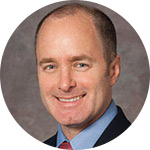 Paul Henderson, associate adjunct professor, Department of Internal Medicine
Paul Henderson, associate adjunct professor, Department of Internal Medicine Lee Miller, associate professor, Center for Mind and Brain
Lee Miller, associate professor, Center for Mind and Brain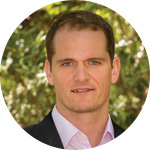 David Olson, assistant professor, Department of Chemistry
David Olson, assistant professor, Department of Chemistry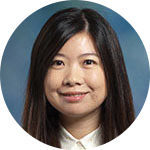 Lin Tian, assistant professor, Department of Biochemistry and Molecular Medicine
Lin Tian, assistant professor, Department of Biochemistry and Molecular Medicine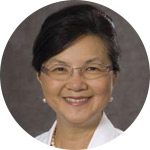 Yu-Jui (Yvonne) Wan, vice chair for research, Department of Pathology and Laboratory Medicine
Yu-Jui (Yvonne) Wan, vice chair for research, Department of Pathology and Laboratory Medicine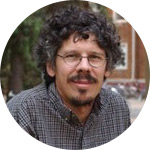 Petr Janata, professor, Department of Psychology
Petr Janata, professor, Department of Psychology Nelson Max, distinguished professor, Department of Computer Science
Nelson Max, distinguished professor, Department of Computer Science Lisa Miller, professor, Department of Human Ecology
Lisa Miller, professor, Department of Human Ecology
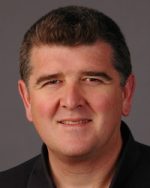 Gino Cortopassi, professor, Department of Molecular Biosciences; Alexey Tomilov, assistant project scientist, Department of Molecular Biosciences
Gino Cortopassi, professor, Department of Molecular Biosciences; Alexey Tomilov, assistant project scientist, Department of Molecular Biosciences